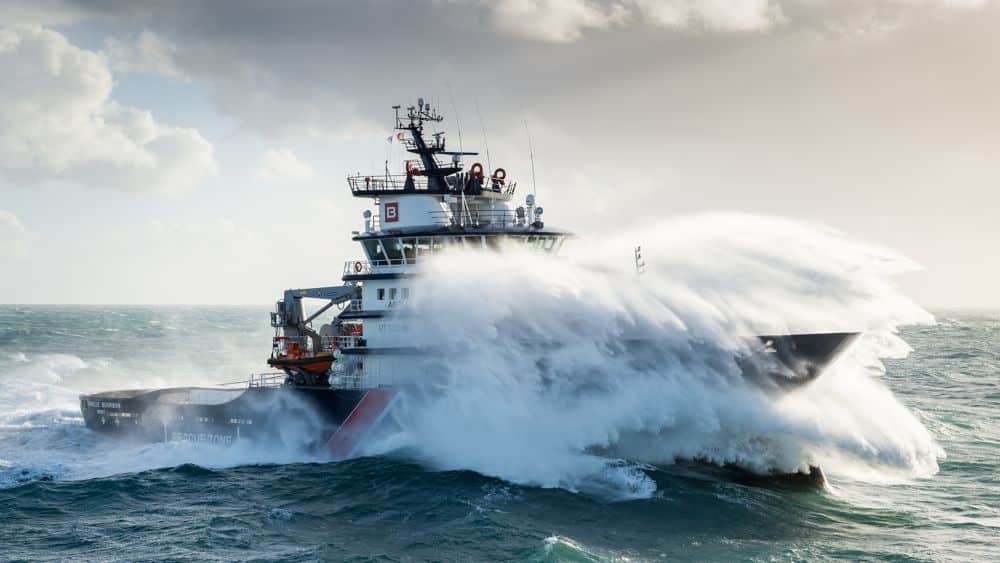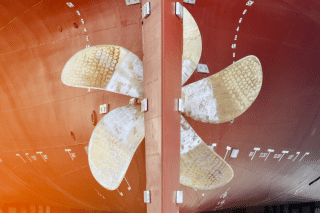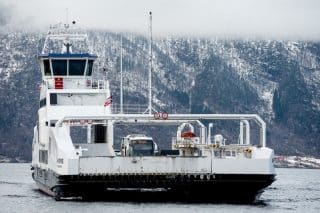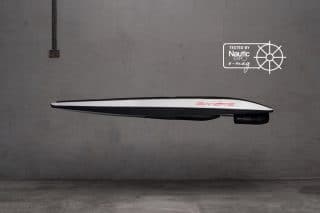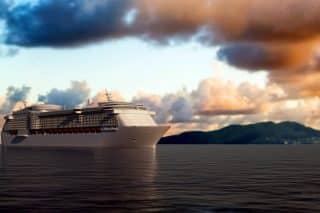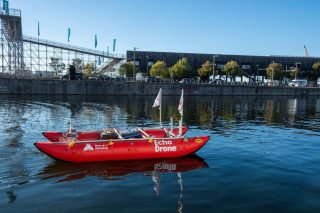Norway-based Kongsberg Maritime, the UK’s Automated Ships and French marine services specialist Bourbon have combined forces to pioneer Hrönn, the first autonomous offshore support vessel (OSV). NauticExpo e-magazine met with Peter Due, Kongsberg’s strategic projects manager.
NE e-mag: Could you tell us more about the systems and how they will operate?
Peter Due: Kongsberg’s responsibility includes all the systems for dynamic positioning and navigation, satellite and position reference, marine automation and communication. Our vessel control systems, including K-Pos dynamic positioning, K-Chief automation and K-Bridge ECDIS and radar, will be replicated at an onshore control center.
The OSV will first be remotely operated from that center, with a transition to fully automated and, ultimately, autonomous operations as the control algorithms are developed.
NE e-mag: What roles will Bourbon and Automated Ships play in the project?
Peter Due: Initially, we will create a CONOPS, a concept of operations, based on Bourbon’s intended use of the vessel. Bourbon will leverage its expertise in building and operating a standardized fleet to provide detailed input for Hrönn’s development, ensuring flexibility, reliability and cost efficiency to operate safely and effectively.
Automated Ships will focus on the design, construction and operation of the vessel, which will be built in Norway. The company has modified the original catamaran design since project launch, now opting for a 37-meter monohull vessel of steel construction. That will provide more payload capacity and greater flexibility over a diverse range of operations.
NE e-mag: Which industries will such an OSV serve?
Peter Due: Apart from the offshore energy and fish farming industries, Hrönn will be suited to hydrographic and scientific research, and use as an ROV and AUV support ship and standby vessel. It also will have the ability to provide firefighting support to an offshore platform, working in cooperation with manned vessels.
“Apart from the offshore energy and fish farming industries, Hrönn will be suited to hydrographic and scientific research.”
NE e-mag: What are your major challenges?
Peter Due: Kongsberg has been integrating with other partners for decades, so we don’t see any big challenges there. The major challenges are more about regulations and class rules. To that end, Hrönn, Kongsberg and DNV-GL are taking part in the SIMAROS project, where the objective is to design new class rules.
NE e-mag: Where will sea trials take place and who will oversee them?
Peter Due: Hrönn’s sea trials will take place in Norway’s official automated vessel test area in the Trondheim fjord. The trials will be conducted under the auspices of DNV-GL, which will class the vessel, and the Norwegian Maritime Authority, which will flag it. Hrönn is expected to enter service in 2018.
